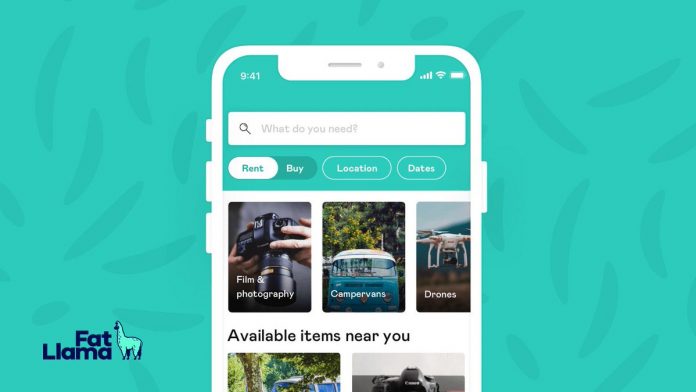Arriving on Fat Lama’s platform, you’ll be greeted with the words ‘Borrow stuff you need. Lend stuff you don’t’, and that about sums up the concept. Anyone can create an account and begin to list items, or rent other people’s belongings for a day or more. It’s free to list and browse, and Fat Lama takes a cut on each instance of lending and borrowing.
However, there are some smart tricks going on in the background to create a thriving network and to ensure it all runs smoothly. As well as customer support, messaging services and ratings and reviews for lenders, every item is covered by a £25,000 insurance policy. So if an item is lost, stolen or damaged during the rental, lenders can be reimbursed via Fat Lama.
Slater reckons that this is another major reason why this startup is succeeding where others have stalled, commenting that “when you are able to bolt on an insurance policy, it massively opens up the pool of items people are willing to rent”.
While Fat Lama’s lending marketplace has categories in sports, electronics, clothing and much more, an early trend has been the rental of equipment for creatives. Professional cameras are popular, as are drones, studio lighting and DJ equipment, offered not only by individuals but also businesses who have assets sitting idle. Users posting items like these for others to use are seeing a real financial benefit. The 30-day leaderboard found on the Fat Lama homepage frequently shows individuals earning £3000 or more. This shows how innovative business models, that redefine our relationship with ‘stuff’, can also open up new ways for people to participate in the economy.
It’s hard to judge precisely how this impacts resource use. Fat Lama is proud to say that some users purchase items specifically to list them on the platform, which could sound contrary to the ethos of a circular economy. However, if one person rents out a camera to multiple borrowers, who consequently don’t need to purchase items themselves, on paper there’s a significant resource saving on offer. What’s more, Tim Slater believes that “in this model, people are much more likely to choose a quality product that is durable and can be repaired, so they can lend it again and again. That’s how we’re encouraging people to move away from take, make and dispose”.
Analysis:
Fat Llama caught my eye, because it made me think about how very temporarily most items are used in a college setting. I wonder how many students each year are buying plastic bins, bed risers, mini-fridges, etc, that are really only useful for the couple of years they live in a dorm, and will simply be trashed afterwards. Students moving in and out of dorms every year probably all need the same things, I wonder how a formal resale network of college-specific items could help prevent waste.




